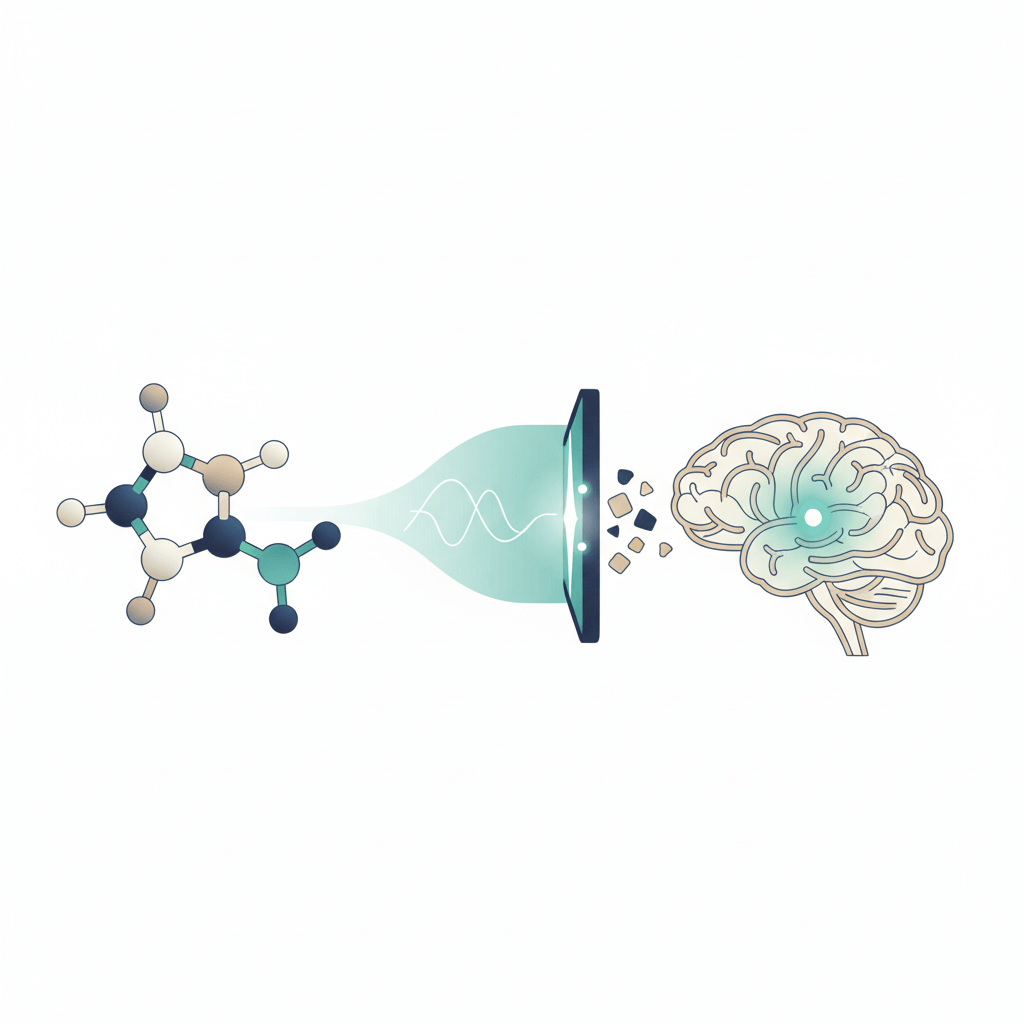The Love for Chocolate
Chocolate is undeniably one of the most beloved and popular treats around the world. Its rich, sweet taste and smooth texture make it a favorite indulgence for many. In this section, we will explore the popularity of chocolate and the curiosity surrounding the concept of chocolate addiction.
The Popularity of Chocolate
Chocolate has a long-standing reputation as a beloved treat. It is enjoyed in various forms, such as bars, truffles, and desserts, and is a staple ingredient in countless recipes. The versatility and deliciousness of chocolate make it a go-to option for satisfying cravings or celebrating special occasions.

The global love for chocolate is evident in its consumption rates. According to a report by Statista, the worldwide chocolate market was valued at over $100 billion in 2020. This figure highlights the immense popularity and widespread consumption of chocolate across the globe.
Whether it's a comforting snack, a gift for a loved one, or a decadent dessert, chocolate holds a special place in the hearts of many.
Curiosity About Chocolate Addiction
The notion of addiction is often associated with substances like drugs or alcohol. However, there is a curiosity surrounding the question of whether chocolate can be addictive. Many individuals have experienced intense cravings for chocolate and wonder if it goes beyond a simple desire for a sweet treat.
To explore the concept of chocolate addiction, it is important to delve into the science and psychology behind cravings and addiction. By understanding the chemical components of chocolate and their effects on the brain, we can gain insight into the potential addictive properties of this beloved treat.
While some studies suggest that certain compounds in chocolate, such as dopamine and endorphins, may contribute to feelings of pleasure and reward, it is essential to differentiate between cravings and addiction. Cravings for chocolate can be a natural response to its taste and texture, without necessarily indicating an addiction.
In the following sections, we will explore the science behind chocolate, the differentiation between cravings and addiction, and the role of psychology in chocolate consumption. By gaining a comprehensive understanding of these factors, we can uncover the bittersweet truth regarding whether chocolate is truly addictive.
Understanding Addiction
To explore the question of whether chocolate is truly addictive, it's important to have a clear understanding of what addiction entails and the factors that contribute to it.
What is Addiction?
Addiction is a complex condition characterized by the compulsive engagement in a substance or behavior despite adverse consequences. It is often accompanied by an intense craving or desire for the substance or activity, loss of control over its use, and continued use despite negative outcomes.
Addiction is considered a chronic brain disorder, as it involves changes in the brain's reward and motivation systems. It is not limited to substances like drugs or alcohol but can also apply to certain behaviors such as gambling, shopping, or even eating.
Factors That Contribute to Addiction
Several factors can contribute to the development of addiction, including biological, environmental, and psychological factors. These factors can interact and influence one another, making addiction a complex and multifaceted phenomenon.
- Biological Factors: Some individuals may have a biological predisposition to addiction. Genetic factors can play a role in determining an individual's susceptibility to developing addictive behaviors. Additionally, certain neurotransmitters, such as dopamine, which is associated with reward and pleasure, may contribute to addiction.
- Environmental Factors: Environmental factors can also influence the development of addiction. Exposure to substance use or addictive behaviors in the family, peer pressure, and availability of the addictive substance or behavior can all impact an individual's likelihood of developing an addiction.
- Psychological Factors: Psychological factors, such as stress, trauma, or mental health conditions, can contribute to the development of addiction. Individuals may turn to addictive substances or behaviors as a way to cope with emotional or psychological distress.
Understanding these factors can provide insight into the nature of addiction and its potential connection to chocolate consumption. In the case of chocolate, it is important to differentiate between cravings and addiction. Cravings for chocolate are common and can be influenced by various factors like taste preferences, mood, and chocolate cravings. However, addiction involves a more complex set of behaviors and psychological factors.
In the following section, we will delve into the scientific aspects of chocolate and its effects on the brain to further explore the question of whether chocolate can be truly addictive.
The Science Behind Chocolate
To understand the potential addictive properties of chocolate, it's important to delve into the chemical components of chocolate and their effects on the brain.
Chemical Components of Chocolate
Chocolate contains various chemical compounds that contribute to its unique taste and texture. One of the most well-known compounds is cocoa, which is derived from the cocoa beans. Cocoa contains several chemicals that play a role in the taste and experience of consuming chocolate.
One such chemical is theobromine, a stimulant similar to caffeine. Theobromine provides a subtle energy boost and has mild psychoactive effects. Another compound found in chocolate is phenylethylamine (PEA), which is often referred to as the "love chemical." PEA is believed to play a role in increasing feelings of pleasure and well-being.
Additionally, chocolate contains small amounts of anandamide, a compound that interacts with the brain's endocannabinoid system. Anandamide is associated with feelings of relaxation and euphoria. These chemical components, along with others present in chocolate, contribute to the unique sensory experience and potential emotional response that chocolate elicits.
Effects of Chocolate on the Brain
When consumed, chocolate stimulates the release of certain neurotransmitters in the brain, including dopamine and endorphins. Dopamine is a neurotransmitter associated with reward and pleasure, while endorphins are known for their ability to reduce pain and induce feelings of pleasure and well-being.
The release of dopamine and endorphins can create a sense of satisfaction and enjoyment when eating chocolate. This combination of chemicals may contribute to the pleasurable experience and the desire to consume chocolate. However, it's essential to note that these effects are generally mild and not as potent as those associated with substances known to be highly addictive, such as drugs or alcohol.
While the chemical components in chocolate can have an impact on brain chemistry, it's important to differentiate between cravings and addiction. Cravings for chocolate may be driven by the sensory pleasure and emotional connection associated with consuming it, rather than a true addiction.
Understanding the science behind chocolate can help shed light on the potential allure and appeal of this beloved treat. While chocolate can elicit pleasurable sensations and enhance mood, it's crucial to maintain a healthy relationship with chocolate consumption and practice moderation. Finding a balance between indulgence and overall well-being is key to enjoying chocolate without falling into any problematic patterns.
Is Chocolate Really Addictive?
When it comes to chocolate, there is often debate about whether it can be truly addictive. Let's explore this topic further by differentiating cravings from addiction and examining relevant studies.
Differentiating Cravings from Addiction
Craving chocolate is a common experience for many people. The allure of its rich taste and indulgent texture can create a strong desire for this sweet treat. However, it's important to distinguish between cravings and addiction.
Cravings for chocolate are typically driven by the pleasurable sensory experience it provides. The taste of chocolate can activate the release of dopamine, a neurotransmitter associated with reward and pleasure. This dopamine release can reinforce the desire for chocolate and contribute to the experience of craving. Cravings are generally considered a normal response to pleasurable stimuli and do not necessarily indicate addiction.
Studies on Chocolate and Addiction
Scientific research on whether chocolate can be classified as addictive is ongoing. While some studies suggest that certain components of chocolate, such as sugar and fat, may have addictive qualities, the overall evidence for chocolate addiction remains limited.
One study published in the journal "Appetite" examined the addictive-like behaviors associated with chocolate consumption. The researchers found that while chocolate consumption can elicit cravings and trigger reward-related brain responses, it does not possess the same addictive properties as substances like drugs or alcohol.
Another study published in the journal "Frontiers in Psychology" explored the relationship between chocolate consumption and addictive-like eating behaviors. The findings indicated that although some individuals may exhibit symptoms of addictive-like eating in relation to chocolate, it is not a widespread phenomenon.
It's important to note that addiction is a complex condition influenced by various psychological and physiological factors. While chocolate can elicit pleasurable experiences and cravings, it does not typically meet the criteria for addiction as defined by medical and psychological associations.
While chocolate may not be truly addictive, it is possible to develop a habit of relying on chocolate as a coping mechanism or emotional crutch. Understanding the role of psychology in chocolate consumption can provide insights into the reasons why some individuals may feel a strong attachment to chocolate. We will explore this topic further in the next section.
The Role of Psychology
While the addictive nature of chocolate is a topic of debate, the role of psychology in our relationship with chocolate cannot be ignored. There is often an emotional connection associated with chocolate consumption, and various psychological factors contribute to our cravings and consumption patterns.
Emotional Connection to Chocolate
Chocolate has long been associated with emotions and pleasure. Many individuals turn to chocolate as a source of comfort or as a way to alleviate stress. The rich taste and smooth texture of chocolate can provide a temporary sense of happiness and satisfaction.
Research suggests that chocolate consumption may trigger the release of certain neurotransmitters in the brain, such as dopamine and endorphins. These chemicals are known to play a role in mood regulation and can contribute to the pleasurable experience associated with chocolate consumption.
Psychological Factors in Chocolate Consumption
Several psychological factors influence our chocolate consumption habits. One such factor is the concept of learned associations. Over time, we may develop a conditioned response to certain situations or emotions, leading us to seek out chocolate as a way to cope or reward ourselves.
Marketing and advertising also play a significant role in shaping our perception and desire for chocolate. Clever branding and enticing visuals can create a sense of craving and anticipation, making chocolate an attractive choice for indulgence.
Furthermore, societal and cultural norms influence our relationship with chocolate. Celebrations and special occasions often involve the exchange or consumption of chocolate, reinforcing its significance and desirability.
Understanding these psychological factors can help us navigate our relationship with chocolate. By recognizing the emotional connection and being mindful of our consumption patterns, we can develop a healthier approach to enjoying chocolate.
While it's important to acknowledge the psychological aspects, it's equally crucial to remember that chocolate cravings do not necessarily equate to addiction. Differentiating between cravings and addiction is essential in determining the nature of our relationship with chocolate.
By being aware of the psychological factors at play and maintaining a balanced approach, we can enjoy the pleasures of chocolate without falling into unhealthy consumption patterns. Moderation and self-awareness are key to maintaining a healthy and enjoyable relationship with chocolate.
Moderation and Enjoyment
While there is ongoing debate about whether chocolate can be truly addictive, it's important to approach its consumption with moderation and a focus on enjoyment. Developing a healthy relationship with chocolate involves finding a balance between indulgence and overall well-being.
Healthy Relationship with Chocolate
To maintain a healthy relationship with chocolate, it's essential to be mindful of portion sizes and frequency of consumption. Enjoying chocolate as part of a balanced diet can be a pleasurable experience without leading to addiction. Rather than consuming chocolate out of compulsion or as a coping mechanism, it is best to savor it in moderation.
When indulging in chocolate, opt for high-quality options that align with your personal preferences. Dark chocolate, in particular, is known for its potential health benefits due to its higher cocoa content. It's important to note that these benefits are associated with moderate consumption and should not serve as justification for excessive intake.
Balancing Indulgence and Well-being
Maintaining a balanced approach to chocolate consumption involves considering your overall dietary choices and lifestyle. While chocolate can provide moments of pleasure and comfort, it's crucial to ensure that it is part of a varied and nutritious diet. Incorporate other foods rich in nutrients, such as fruits, vegetables, whole grains, and lean proteins, to support overall well-being.
Additionally, engaging in regular physical activity can help offset any potential negative effects of chocolate consumption. Exercise not only contributes to physical health but also promotes mental well-being, which can influence our relationship with food.
Understanding your personal triggers and emotional connections to chocolate can also contribute to a healthier relationship with this treat. It's essential to be mindful of any emotional or psychological factors that may influence your chocolate consumption. Developing alternative coping strategies and seeking support if needed can help manage cravings and prevent excessive indulgence.
Remember, enjoyment of chocolate should be a pleasurable experience rather than a source of guilt or addiction. By cultivating moderation, listening to your body's cues, and focusing on a well-rounded approach to nutrition and self-care, you can maintain a healthy relationship with chocolate while savoring its tempting flavors.













